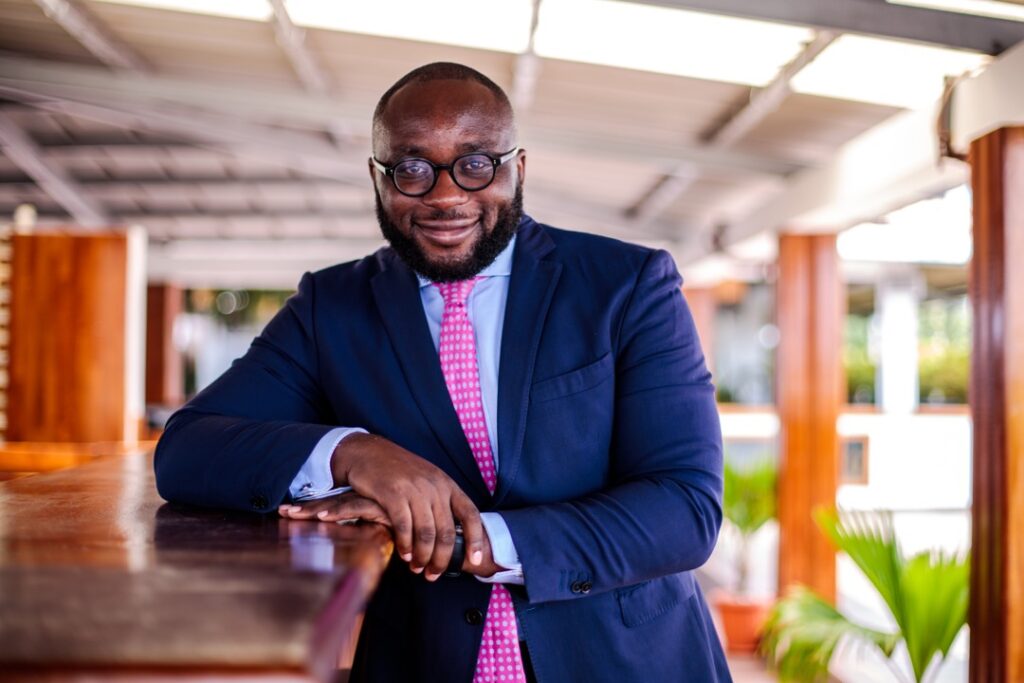How I Got Into Insead & London Business School: 5 Game-Changing Success Factors
My MBA Journey: N’doli Jean-Hugues Cherif, Insead MBA, Class of 2026
N’doli Jean-Hugues Cherif, Insead MBA ’26, contributed this piece to Touch MBA. Cherif graduated from Concordia University with a Bachelors in Political Science and then Cranfield University with a Masters in Management. Cherif then worked as an auditor for PwC, management consultant for Square Management, and then in Financial Advisory and Project Finance for the government of Côte d’Ivoire and then as an investment banker for Obara Capital. He later returned to Paris with his family to do Financial Advisory and Project Finance for Egis. He will be attending the Insead MBA program in Fontainebleau, France, focused on a post-MBA career in infrastructure-focused private equity.
If you would like to share your MBA application journey to help future applicants, please contact us here.
From my perspective, the five key success factors in my successful applications were:
Focus
From my perspective, a successful MBA application demands intense and sustained focus. From test preparation to essay drafting, you must eat, sleep, and breathe MBA. This means immersing yourself in the world of business schools, listening to podcasts like Touch MBA, following credible sources for test prep strategies, and staying informed about the latest trends in business education. It also means cultivating a habit of recording every thought or idea that could enhance your application. Whether it’s a personal memory, a current event, or a casual conversation, anything can spark insight for your essays. Over a period of six to eight months preceding your application, your mindset must be fully committed to continuous improvement and strategic self-development.
Self-awareness
Self-awareness is your most powerful tool in presenting an authentic and compelling narrative. I’ve always had a strong ability to self-assess as I can often predict the outcome of a test or interview moments after it ends. This kind of introspective clarity is essential when applying to business school. Admissions committees look for applicants who can articulate their strengths with confidence but also acknowledge their development areas with humility, and I believe this was reflected both in my essays and interviews. The best applicants demonstrate maturity, emotional intelligence, and a clear understanding of how an MBA fits into their personal and professional growth journey. Self-awareness shows you are ready to learn, grow, and receive feedback, qualities that are foundational for MBA success.
Coherence
Throughout my application process, one word came up repeatedly: coherence. With job markets shifting and even top-tier graduates struggling to secure employment (23% of Harvard’s MBA Class of 2024 were reportedly jobless three months after graduation) business schools are under pressure to admit candidates with a well-aligned, low-risk profile. This means your past experience, career goals, and rationale for pursuing an MBA must connect logically. Candidates with fragmented stories, such as someone from a marketing background aiming for investment banking without a clear bridge, raise red flags. In contrast, a coherent narrative that demonstrates progression, purpose, and feasibility reassures the admissions committee that you’re not only ambitious but also grounded. In my case, my background in investment banking and financial advisory, particularly with a focus on project finance transactions in emerging markets, aligns naturally with my ambition to transition into infrastructure private equity. Through my essays and interviews, my objective was to demonstrate how INSEAD’s strong presence in emerging markets, global reputation in the finance industry, and impact minded alumni network made it the ideal platform to support this career shift. In doing so, I aimed to show that INSEAD was not just a stepping stone, but a strategic accelerator for someone with my trajectory and aspirations.
Peer review
Questions such as London Business School’s “What makes you unique?” can be surprisingly difficult to answer alone. This is where trusted peers become invaluable. Sharing your essays with people who know you well such as friends, family and mentors can yield perspectives you hadn’t considered. In my case, my wife was instrumental. She read countless drafts, helping me decide which personal stories were most compelling. I also solicited feedback from a few close friends, which helped me refine my message and improve the overall structure and tone. If anything, effective peer review only sharpens one’s voice by making it more relatable and authentic.
Work with a consultant
Even with strong writing skills and a supportive network, I found it essential to work with an admissions consultant. First thing, the best track record or the fanciest brand name consultant may not be the best fit. To get the most value from this collaboration, you must be clear on what you need help with. For me, the consultant provided validation and helped me fine-tune the tone and impact of my essays. She also helped me make tough editing decisions, deciding what to trim and what to emphasize, to meet strict word limits without sacrificing content. From my perspective good consultants don’t create or rewrite your story, they help you tell it better, more strategically, and with the clarity that admissions committees expect.
– N’doli Jean-Hugues Cherif
More Resources
- Listen to Cherif discuss his 5 success factors – and more – on the Touch MBA Podcast
- Get free school selection help at Touch MBA
- Get pre-assessed by top international MBA programs



One thought on “How I Got Into Insead & London Business School: 5 Game-Changing Success Factors”
Pingback: #230 Five Keys to MBA Admissions Success with N'doli Jean-Hugues Cherif, Insead MBA '26 - » Touch MBA